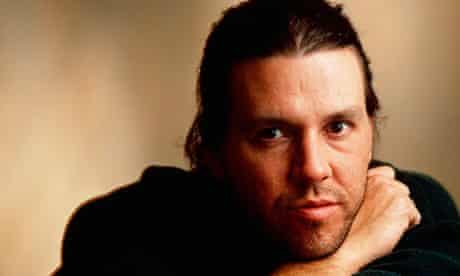Two thousand four hundred years after it was composed, we need the Tao Te Ching's lessons in self-awareness more than ever. Little can be said with absolute certainty about the origins of the Tao Te Ching. Consensus suggests it was written around 400BC by one Laozi. Laozi translates simply as "old master" – a hint that the author's (or authors') true name has been lost for ever.
Tao Te Ching translates very roughly as "the way of integrity". In its 81 verses it delivers a treatise on how to live in the world with goodness and integrity: an important kind of wisdom in a world where many people believe such a thing to be impossible.
Texts as old as the Tao Te Ching are subject to the problems of both translation and interpretation. Take this collection of more than 100 versions of the famous opening verse:
The Tao that can be trodden is not the enduring and unchanging Tao.
Translated by James Legge (1891)
The Tao-Path is not the All-Tao. The Name is not the Thing named.
Translated by Aleister Crowley (1918)
The tao that can be told, is not the eternal Tao.
Translated by Stephen Mitchell (1988)
If you can talk about it,
it ain't Tao.
Translated by Ron Hogan (1994)
The way you can go
isn't the real way.
Translated by Ursula Le Guin (1998)
The third is from the most popular modern translation by Stephen Mitchell. Mitchell does a remarkable job of interpreting the more abstruse metaphors of the fourth-century mind for modern audiences - although, this does of course leave the possibility that it is actually the wisdom of Mitchell, not Laozi, shining through these words.
Many readers derive more anger than comfort from the philosophy of the Tao Te Ching. If that first line resembles the famous zen koan "what is the sound of one hand clapping?", it is because it's derived from a parallel philosophical tradition, and exists to fulfil the same purpose. It's the compulsive need to answer unanswerable questions that is, in Taoist philosophy, the mind's great dysfunction.
"The unnameable is the eternally real. Naming is the origin of all particular things." The second line of Mitchell's translation opens up the nature of the dysfunction. We're accustomed to perceiving our world and all the objects in it by naming them. But what if we stop obsessively naming everything and instead just - pardon me while I slip in to full on hippy mode for a moment - rest in awareness?
What the Tao Te Ching does, time and time again, is attempt to show us how we might see things if we could spend more time in awareness, and less in naming. "Practice not-doing, and everything will fall into place." This, from the third verse, sounds positively heretical to the work- and productivity-obsessed modern mind. Perhaps if we were more aware, we would worry less, and could see better what actually needs doing.
But the central thing the Tao Te Ching asks us to be aware of is not the world, but our self. Self-awareness. We all know the term, but do we really know what it means? "Love the world as your self; then you can care for all things," closes verse 13 of the Tao Te Ching. What would it be like to care for all things as much as we cared for our self?
In the words of David Foster Wallace, whose literary philosophy is a natural mirror of Taoist thought, the default setting for people is to be "uniquely, completely, imperially alone day in and day out". Not because we are physically alone, as we know loneliness hits heaviest in crowds. But because we are mired in a deep-seated and near-universal delusion. Despite knowing that we are part of a vast universe, on a massively complex planet shared with seven billion other human lives, we continue with the truly insane perception that we are the centre of the world.
"When the Master governs, the people are hardly aware that he exists. Next best is a leader who is loved. Next, one who is feared. The worst is one who is despised. If you don't trust the people, you make them untrustworthy. The Master doesn't talk, he acts. When his work is done, the people say, 'Amazing: we did it, all by ourselves!'"
Verse 17 of the Tao Te Ching reflects on one of the text's consistent themes, how to lead others with integrity. Today we seem to actively select against leaders who demonstrate self-awareness. Instead, in political figures such as Tony Blair and Boris Johnson, the mass-media landscape favours survival of the biggest and most monstrously deformed egos.
"If you over-esteem great men, people become powerless." Perhaps what we need to learn from phone-hacking scandals and other modern corruptions is that the Bullingdon Club and Chipping Norton set are over-esteemed as leaders. They're an unavoidable by-product of power, a scum of pure ego that forms on the surface of society and imitates the appearance of leadership.
The Tao Te Ching is a 2,400-year-old reminder that today, as then, every one of us has a choice to practise self-awareness and exercise our own power in and over the world. That might come as more of a nasty wakeup call than a comfort to some of us. As Wallace said: "It is unimaginably hard to do this, to stay conscious and alive in the adult world day in and day out." As hard as it is, for the moments we read it, the Tao Te Ching makes it seem at least possible.













